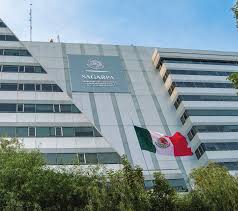By Martha Isabel Ruiz Corzo
With great excitement, we attended a working meeting at the headquarters of Agriculture, Livestock, Rural Development, Fisheries and Food Ministry (SAGARPA) in Mexico City, convened by Dr. Francisco José Gurría Treviño, General Coordinator of Farming and Livestock, as well as various branches of SAGARPA such as the The National Commission of Arid Zones (CONAZA). Other attendees included the organization of diversified livestock ANGADI, who have a great track record in soil and wildlife recovery. The Savory Hubs of Sonora, Coahuila and Sierra Gorda, entities of the Savory Institute and educators in the holistic management of resources and soil regeneration were also in attendance.
Holistic management has many great advantages over conventional management. To start with, it regenerates the microbiology of and remineralizes the soil, incorporating organic material which enriches the soil and restabalizes its health, both of which are required for successful food production. Whilst doing this, it also captures carbon dioxide and water in the soil; therefore, strengthening regional resilience.
Knowledge is shared with farmers who adopt new technologies and develop an entrepreneurial spirit. Through a resource management and planned grazing plan, farmers must adjust their actions, thereby increasing the capacity of their pastures to maintain double the number of livestock. Farmers reintroduce microorganisms, remineralize their soil and produce bio-fertilizers in order to produce organic food. It is a model that has been effective in preventing desertification in other parts of the world as well as improving food security and is an effective tool in reducing the impacts of global warming. Cows and planned grazing are the essential key to be able to develop roots and humus in the soil, so that it acts as a sponge for storing water and carbon.
The Savory Institute acts on a global level and Grupo Ecologico Sierra Gorda has been receiving training from them and putting it into practice for years. We were selected as one of the 10 Savory hubs in the world and we are close to being officially certified. We are now looking to share this knowledge with other parts of Mexico. Today there are three Savory hubs in the country: Sonora, Chihuahua and Sierra Gorda, a great collection of knowledge and promoters of agricultural management best practices.
The synchronization and far reach of the process has surpassed our expectations. By coordinating with The Secretariat of Environment and Natural Resources (SEMARNAT) and SAGARPA, there is now talk of providing payment incentives for farmers to capture carbon in their soils, acting as a national strategy to combat climate change. Grupo Ecologico Sierra Gorda is working with 15 pilot cattle ranches, which all use holistic management methods, 70 agricultural plots and 62 vegetable gardens managed by local women. All participate and adopt best practices with great enthusiasm. They are changing their traditional methods for a variety of techniques that are appropriate for tackling climate emergencies and the desertification of the country, preparing us for what is on its way.
We praise SAGARPA’s institutional initiative, as well as their vision and desire to regenerate and recover the fertility and productivity of Mexico’s land. We hope this initiative will go from strength to strength and that activities will be rolled out across the country to tackle the loss of ecosystems.
Visit our channel on Youtube
Follow us on Facebook: Sierra Gorda
Ecotours + Productos
Bosque Sustentable
Follow us on Twitter: @SierraGorda
@VivaSierraGorda

